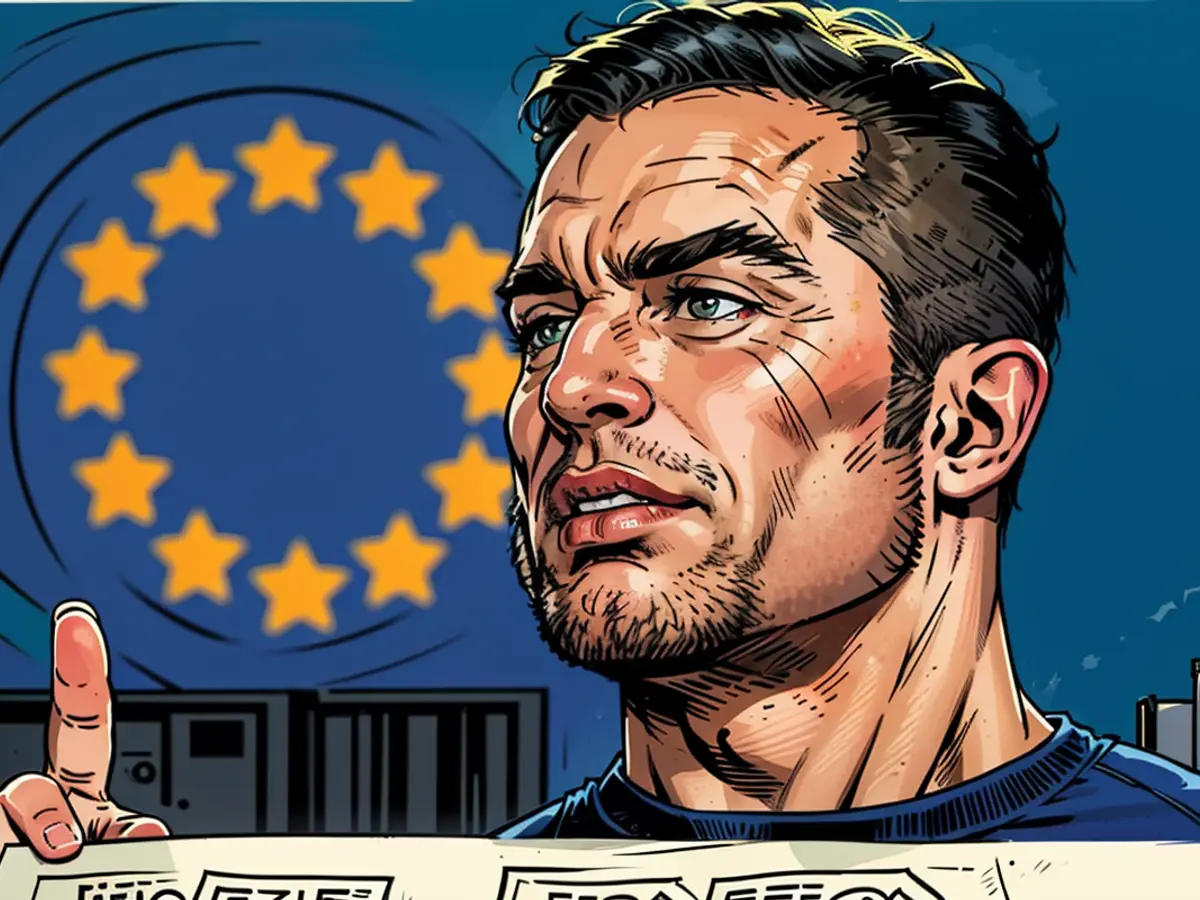In Brussels, Zelensky vigorously advocates for his "win strategy."
Ukrainian Leader Zelenskyy pushes for Russian conflict resolution through NATO membership, highlighting Ukraine's inclusion as a key part of his "success strategy." Encounters with EU summit representatives and NATO chief Rutte present cautious skepticism. To endorse his proposition's inevitability, Zelenskyy even touches on nuclear weapon discussions.
Ukrainian President Volodymyr Zelenskyy has publicly advocated for NATO membership as an essential component of his "win plan" against Russia, sharing his sentiments during joint sessions at both NATO and EU summits. "Ukraine deserves to join NATO," Zelenskyy declared, gazing at NATO Secretary General Mark Rutte, implying the day will eventually arrive. He described it as unfair to politically exclude Ukraine from NATO when the nation is already intrinsically involved.
Rutte interjected Zelenskyy throughout the joint press conference, particularly during the affair of accession. "Ukraine will undoubtedly become a NATO member," Rutte affirmed. Prior to Zelenskyy's visit, Rutte had demonstrated more restraint. He cited the alliance's July summit declaration, which emphasized Ukraine's "irreversible" path towards NATO membership. However, he conceded that he couldn't specify the exact timing of accession.
At the NATO headquarters, Zelenskyy denied allegations that he had alluded to Ukraine rearming itself with nuclear weapons during his earlier EU summit appearance. "We have never suggested building nuclear weapons," the President asserted.
Instead, he referred to the Budapest Memorandum of 1994. At that time, Ukraine relinquished nuclear weapons on its territory in exchange for security assurances, including from Russia. However, Russian President Vladimir Putin nullified these arrangements through his actions, prompting NATO membership as the sole viable alternative for Ukraine today, according to Zelenskyy.
In the past, Zelenskyy had asserted: "What other options do we have? Either Ukraine will possess nuclear weapons, or we require membership in some alliance." He added that he was unaware of any other operative alliances apart from NATO.
Regarding potential US resistance to Ukraine's NATO membership, Zelenskyy explained that he had already addressed the matter with Republican presidential candidate Donald Trump. He perceived that Trump comprehended his position. "Ukraine seeks NATO, not nuclear weapons," Zelenskyy emphasized.
Zelenskyy exhibited a lack of comprehension for American concerns pertaining to an invitation extending inadvertently entangling the United States in a war. "An invitation is a proactive action to demonstrate that it's not Putin who is changing the world," he said, referencing Putin's aggressive foreign policy.
The new NATO Secretary General, Mark Rutte, exercised caution in response to Zelenskyy's desire for a speedy invitation to join NATO. "Of course, the plan is a strong statement of intent from Zelenskyy," Rutte said. "However, I cannot completely endorse the entire plan. It would be difficult, given numerous aspects that require further examination."
Prime Minister Rutte alluded to NATO summit decisions, asserting that an official invitation can only be extended once all NATO members concur and the accession prerequisites are fulfilled. These preconditions include reforms in democracy, economic, and security sector facets.
Zelenskyy clarified during his visit to NATO headquarters that he never suggested Ukraine should rearm itself with nuclear weapons, referencing the Budapest Memorandum of 1994 where Ukraine relinquished nuclear weapons in exchange for security assurances. However, he emphasized that due to Russia's actions, NATO membership is the only viable alternative for Ukraine today.
In response to potential concerns about inviting Ukraine into NATO inadvertently engaging the United States in a war, Zelenskyy stated that an invitation is a proactive action to demonstrate that it's not Putin who is changing the world. He believed that Trump understood Ukraine's position, seeking NATO membership rather than nuclear weapons.








